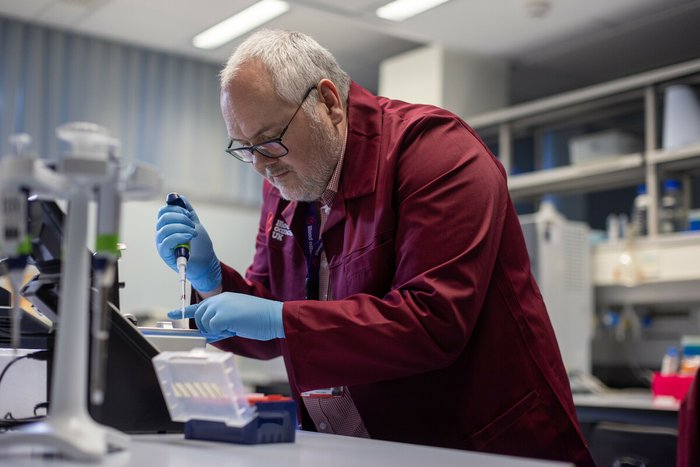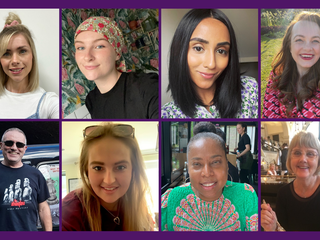Our research strategy: early detection and predicting outcomes
Because early detection and personalised treatment will improve outcomes for people with blood cancer.
Through research, we will find ways to ensure an early diagnosis for every person with blood cancer and give people an accurate picture of what the future holds for them.
Head to page 20 of the full strategy to read more on early detection.

The challenge
Many people with blood cancer face delays in diagnosis as symptoms can be unclear and are often mistaken for other conditions. Research shows nearly a third of patients visited their GP three or more times before being referred for tests.
Diagnosing blood cancer often involves taking bone marrow samples, a procedure that can be painful and inconvenient. Without the time to create effective treatment plans, some people may receive a ‘default’ treatment that doesn’t help them and still causes side effects.
The opportunity ahead
Early diagnosis was a major theme of our 2024 UK Blood Cancer Action Plan. The Government and the NHS can help improve referral and diagnosis of suspected blood cancer with existing resources and knowledge.
Trials of multi-cancer early detection tests and the use of Artificial intelligence (AI) to assess symptoms or analyse samples could speed up diagnosis. These advances can help ensure that everyone with blood cancer gets an early diagnosis and personalised care.
Project spotlight
Myeloproliferative neoplasms (MPN) are a group of blood cancers that affect around 5,000 people every year in the UK. People are usually diagnosed after a bone marrow biopsy is reviewed by a specialist using a microscope. But relying upon the human eye can be prone to error, and sometimes it is possible to miss the earliest changes that indicate blood cancer.
Professor Daniel Royston and Professor Jens Rittscher are developing AI tools to reliably spot abnormalities in bone marrow biopsies, diagnosing cancers like MPNs quicker and more accurately.

Professor Daniel Royston
“The range of opportunities for using AI in pathology is remarkable ... [it] can only benefit people affected by blood cancer
- Professor Daniel Royston

#SayBloodCancer
Many people with blood cancer aren't told they have a type of blood cancer at the point of diagnosis. We're calling on healthcare professionals and our community to #SayBloodCancer and arm people with the facts about their condition.

Take action for swifter diagnosis
One in three people visit their GP three or more times before being diagnosed, and certain groups of people are more susceptible to developing blood cancer. Take action to change this.
More About This